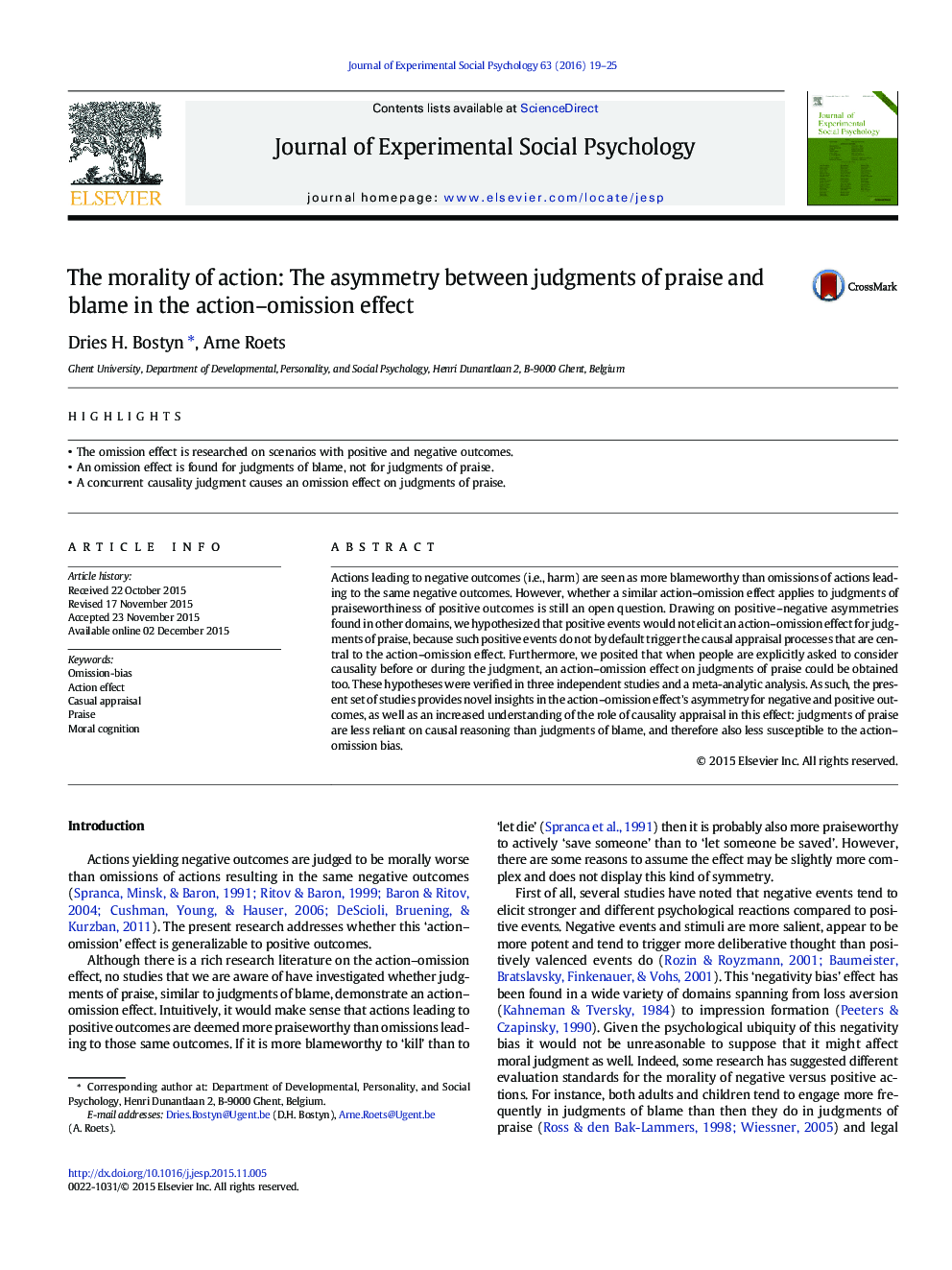| Article ID | Journal | Published Year | Pages | File Type |
|---|---|---|---|---|
| 7324428 | Journal of Experimental Social Psychology | 2016 | 7 Pages |
Abstract
Actions leading to negative outcomes (i.e., harm) are seen as more blameworthy than omissions of actions leading to the same negative outcomes. However, whether a similar action-omission effect applies to judgments of praiseworthiness of positive outcomes is still an open question. Drawing on positive-negative asymmetries found in other domains, we hypothesized that positive events would not elicit an action-omission effect for judgments of praise, because such positive events do not by default trigger the causal appraisal processes that are central to the action-omission effect. Furthermore, we posited that when people are explicitly asked to consider causality before or during the judgment, an action-omission effect on judgments of praise could be obtained too. These hypotheses were verified in three independent studies and a meta-analytic analysis. As such, the present set of studies provides novel insights in the action-omission effect's asymmetry for negative and positive outcomes, as well as an increased understanding of the role of causality appraisal in this effect: judgments of praise are less reliant on causal reasoning than judgments of blame, and therefore also less susceptible to the action-omission bias.
Keywords
Related Topics
Life Sciences
Neuroscience
Behavioral Neuroscience
Authors
Dries H. Bostyn, Arne Roets,
